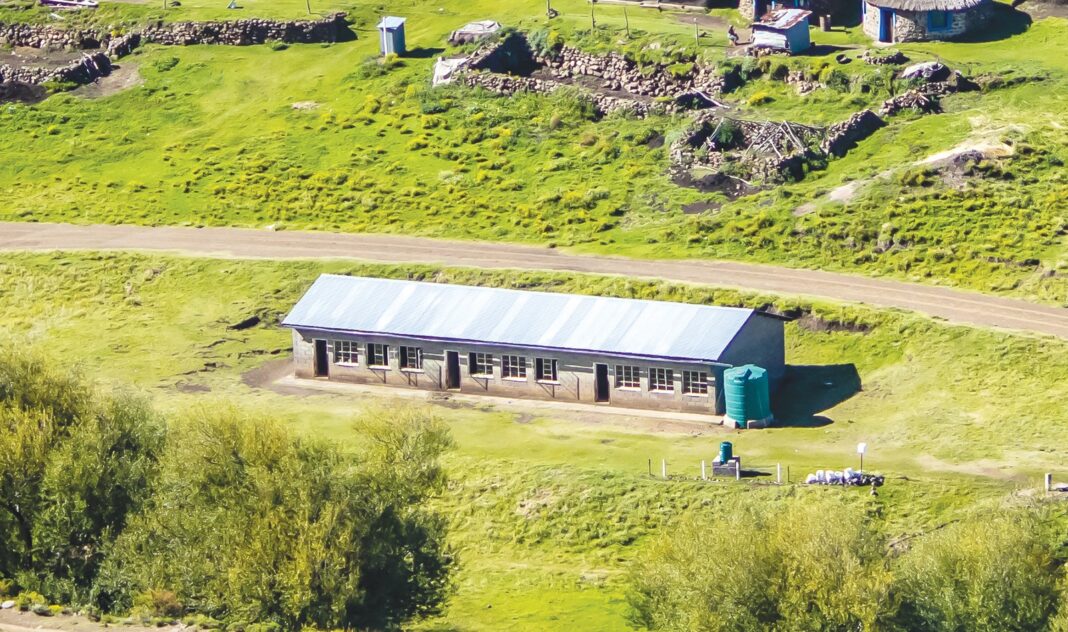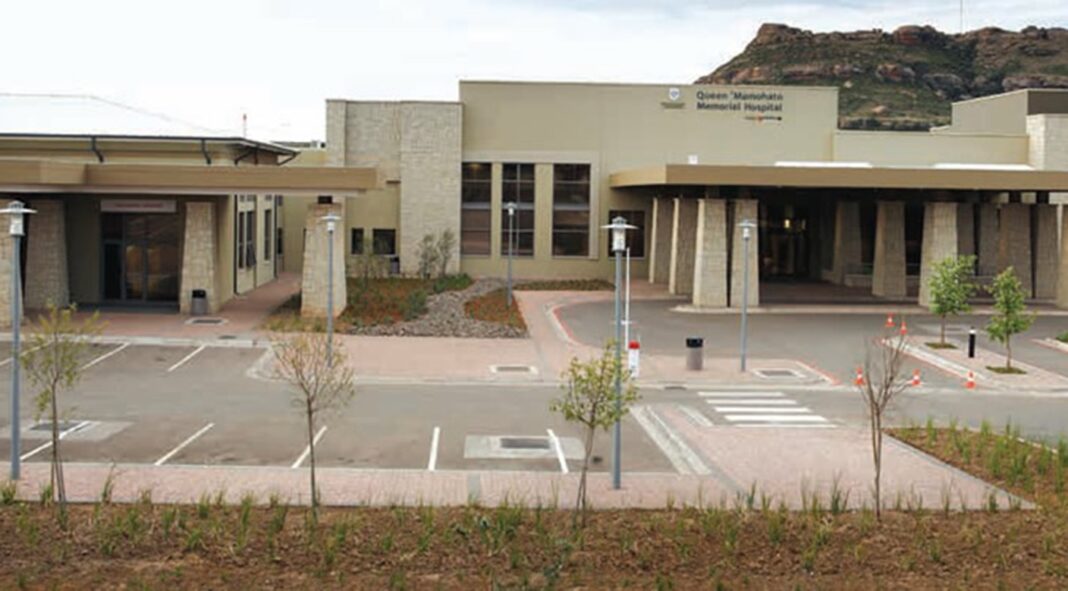By Neo Kolane
Tṧethe Primary School, that is run and owned by the Lesotho Evangelical Church in Southern Africa (LECSA), is situated in the village of Ha Mokhosi in the district of Quthing.
The school lies between a dry gully and the village, along the main gravel road to Ha Peete, a village which is 5km away.
Founded in 1967, it initially offered lessons in a thatched hut with one teacher and four standard 1 pupils.
After the collapse of the classroom walls, the classrooms increased to Standard Five which spanned for some time until it got to Standard Seven.
Later, a church was built by the villagers when they sold their bulls to buy galvanized iron sheets. That development led to more hiring of teachers through the teaching service department. Their monthly pay was forked from the government coffers.
As time went on, the school was officially registered as a church entity offering teaching and learning services to pupils.
Now, Tṧethe Primary school has a total roll of 158 pupils with three classrooms; two classrooms accommodate two streams while the third classroom accommodates three streams with five teachers.
Grade 1 pupils are from the age of 6 while some Grade 7 learners are aged between 16 and 18.
During theReporter’ss visit to the school, one teacher, Matṧolo Matsoso, said despite significant upgrades at the school, there was an assortment of tormenting challenges which are faced by this rural learning facility.
Matsoso observed that during the winter season, the pupils are unable to walk to school due to heavy snow fall, a common occurrence in the countryside settings during that period.
She said the pupils are fed soft sorghum porridge every morning which is mixed with sugar and sunflower oil. She remarked that this type of food stuff keeps children warm as it is offered in the morning hours, especially during the cold season.
Nonetheless, the school has made tremendous progress in its history.
According to her, this was witnessed when some of its learners progressed to higher education and some of them even graduated from the country’s only university, the National University of Lesotho (NUL). She waxed lyrical as she said some of those learners have gone on to become cabinet ministers, top civil servants and professional teachers.
The principal of the school, Keketso Koatsa, said despite the advent of free education up to Grade 7, children still struggle to stay in school, with some either getting married or deserting to go and look after their families’ livestock
Koatsa explained that many of the pupils have to walk two to four hours to get to the school each day, and arrive at school hungry; this affects their learning ability as it is hard for them to concentrate.
“We have pupils from as far as Ha Peete, Ha Khethisa or Khakeng which is about five kilometres away from the school.
We encountered pupils walking in large groups from the school, and spoke to one of them Likeleli Khooaeane who is in Grade 6. She told the paper that she is not happy that she has to walk the long distance to school but has no alternative.
Likeleli said sometimes the river they cross hits its banks when there are heavy downpours. That forces them to use an alternative and longer route which sees them arrive late at school.
Likeleli’s mother, ‘Marorisang Khooaeane confirmed that children have to take a longer route to and from school when the river is in flood “in order to avoid being swept away.”
‘Mamorisang expressed her wish for more schools to be built closer to their villages.
Koatsa confirmed that the pupils travel across dongas and dry gullies and have to walk through people’s fields to get to school. Some of them show up in class without decent uniform, jackets, coats or shoes to stay warm.
“The pupils often wear thread-bare hand-me-down uniforms to school while some come in private clothes because their parents struggle to buy their school going children uniform.
“A debilitating lack of resources to maintain the infrastructure leaves the school classroom windows cracked and some broken. Animals make their way into the school yard with herdboys having to hurl stones to control the animals. The stones sometimes miss their target and hit the windows,” she clarified.
At this school, teachers were seen marking the pupils outside as they have no staff room or office, resulting in Koatsa keeping valuable documents and school records at her rented house nearby.
She said, adding to the long list of problems is shortage of food as the school usually runs out of supplies. This leads to learners from poor families, studying on empty stomachs.
She recounted how a learner was once found wiggling on the ground in school yard, and it was suspected the learner had collapsed from hunger.
“The pupils are fed through the school feeding programme by a company called TJ General Dealer; they eat maize porridge (papa) and beans on Monday. On Tuesdays, they are served samp and beans while maize meal and lentils are dished out on Wednesdays. On Thursdays the pupils eat maize meal porridge and peas while on Fridays they are offered maize meal with eggs.
The World Food Programme’s (WFP) strategic plan (2022–2025) fully commits to supporting countries in their efforts to achieve the Sustainable Development Goals (SDG), WFP’s vision focuses on eradicating hunger and malnutrition SDG 2; and strengthening and revitalizing partnerships SDG 17.
This will be achieved by ensuring that people are better able to meet their urgent food and nutrition needs, have better nutrition, health and education outcomes and enjoy improved and sustainable livelihoods.
In addition, the strategic plan states that WFP will strengthen national programmes and systems and ensure that humanitarian and development actors are more efficient and effective.
“WFP’s drive to ensure that all hungry children benefit from a nutritious meal at school serves as a flagship effort with the potential to support local agriculture and markets, while simultaneously improving health, nutrition and education outcomes,” the document reads.
A Global Study on Child Poverty and Disparities which was launched by UNICEF in 2007 says that child wellbeing is material as well as spiritual and emotional. It is not enough to have access to education, health care, income and food but there needs to be a meaning to life, the ability to hold expectations, feel love, trust and a lack of abuse.
The study added that although this describes what poverty is with respect to children, it is difficult to conceptualise and measure in many situations. Yet it is important to include in any child poverty measurement the viewpoint of the child – how they experience poverty – while acknowledging the wider context that surrounds the child.









